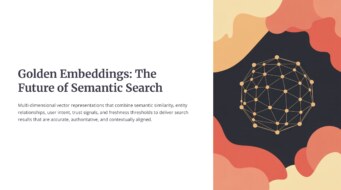At its core, an altered query is a system-generated modification of the user’s original input. This change happens automatically through rewriting, expansion, correction, or contextualisation, producing a new query that aligns with the engine’s information retrieval (IR) and ranking logic.
Rather than treating the raw user phrasing literally, the search system interprets it through linguistic models, semantic similarity measures, and indexed entity relationships to construct a version that is easier to evaluate and rank.
Key Dimensions of Alteration
Query rewriting / reformulation – The system replaces or re-orders words to better match indexed language patterns, closely linked to techniques like query phrasification and query rewriting.
Query expansion – Synonyms, related entities, and co-occurring terms are added to improve recall, similar to what’s explored in query augmentation.
Contextual modification – Incorporates history, device, or location signals to personalise meaning within a defined contextual hierarchy.
Error correction / canonicalisation – Transforms vague or incomplete phrasing into canonical forms that the index recognises — an essential function in semantic and conversational search.
The takeaway: search engines don’t simply find your keywords; they reinterpret them. To align, you must produce content that anticipates how your target queries are likely to be altered in the system’s pipeline.
Why Altered Queries Matter in Contemporary Retrieval Systems?
Improving Accuracy and Relevance
Altered queries sharpen recall and precision — two core evaluation metrics for IR. By rewriting ambiguous input, search systems recover documents that the raw text alone might have missed. For content strategists, this means one article can rank across many rewritten versions of a query when semantic structure and entity consistency are strong.
Aligning with Indexing and Ranking Structures
Modern retrieval depends on structured entity graphs, embeddings, and vector indexes. A query that doesn’t map neatly to these representations is reformulated before scoring. That’s why semantic marketers invest in entity-oriented schemas and structured data — they make it easier for engines to connect altered queries back to relevant pages.
Enhancing Conversational and Multi-Turn Search
In conversational search experiences, each utterance relies on the context of the previous one. A user might say, “Show me hotels in Paris,” then follow with “What about 5-star near the metro?” The second prompt is automatically altered into “5-star hotels near Paris metro stations.” This mirrors how sequence modeling operates in NLP — capturing continuity and intent across turns.
Implications for Content Strategy and Semantic SEO
Cover both explicit and implicit intents around each topic so your page matches multiple altered variants.
Strengthen contextual coverage within clusters, ensuring every semantic angle is represented.
Optimise entities and schema markup so rewritten or expanded queries map clearly to your page’s structured meaning.
Analyse how Google or Bing reformulate your target terms by comparing Search Console query data to visible snippets — this reveals which altered forms drive impressions.
How Altered Queries Work — Core Techniques
1. Token-Level Rewriting
Here the system adjusts word order or substitutes equivalents to fit the syntactic expectations of its index.
Example:
“weather tomorrow New York” → “New York weather forecast for tomorrow”
Such restructuring supports ranking models that rely on word adjacency and phrase integrity. Content that naturally mirrors human sentence flow tends to align better with these rewritten forms.
2. Query Expansion
When a query is too narrow, expansion adds synonyms, related entities, or co-occurring concepts. For instance, “laptop deals” may expand to “notebook discounts” or “cheap computers.” From an SEO perspective, weaving these related terms within your content helps the engine connect your page to multiple expansion paths without over-optimisation or keyword cannibalization.
3. Contextual and Semantic Rewriting
Systems use contextual signals — search history, location, device, user intent — to inject precision. A user searching “best brands” after “running shoes” might trigger a rewrite into “best running-shoe brands.” This behaviour links to contextual flow and contextual bridge design in your own content: your pages should transition meaning naturally so they stay relevant to a rewritten search path.
4. Error Correction and Canonicalisation
Misspellings and shorthand (e.g., “NY hotel 5*”) are normalised into canonical entities like “five-star hotels in New York City.” Structuring your data with precise names, categories and attributes reinforces your alignment with knowledge graphs and prevents mis-matching during alteration.
5. LLM-Driven and Neural Rewriting
Recent advances in transformer-based models such as BERT or LaMDA have revolutionised how systems handle query alteration. These models infer latent meaning and generate rewritten queries that capture deeper semantics, not just lexical variants. This neural approach integrates with dense retrieval, vector databases, and re-ranking models to deliver higher contextual accuracy.
Practical Implications for SEO and Content Strategy
Understanding altered queries allows you to anticipate how search systems reinterpret intent — letting you design content that aligns with both user language and machine logic.
1. Optimise for Query Families, Not Just Keywords
Search systems often group semantically related variants into canonical queries, similar to the principle of canonical search intent.
By building clusters around these canonical representations, you make it easier for algorithms that perform ranking signal consolidation to associate all query forms with a single authoritative page.
To achieve this:
Map every target keyword to its possible altered versions using semantic clustering tools.
Expand coverage through internal hubs structured as semantic content networks that link between subtopics and entities.
Use contextual borders to prevent topical overlap between clusters, ensuring clarity for both users and crawlers.
2. Enrich Entity and Schema Connections
When the system rewrites a vague query, it relies heavily on entity recognition and structured data.
Implement schema.org markup consistently for products, organizations, and local entities to help the system ground rewritten queries in factual structure.
Also:
Reinforce entity salience and importance through repeated, contextually relevant mentions.
Build knowledge-based trust by aligning content facts with authoritative datasets such as Wikidata.
Maintain a healthy update score to signal ongoing topical freshness to systems that evaluate temporal query relevance.
Overcoming Common Challenges
While altered queries greatly improve retrieval, they introduce technical and strategic complexities that SEOs and content architects must address.
1. Query Drift
Over-expansion can push the altered version away from the original meaning. For instance, expanding “AI writing ethics” into “AI content generation tools” alters the intent entirely. To prevent drift:
Keep anchor entities consistent across articles within a topical map.
Strengthen semantic cohesion using contextual flow so related entities remain logically connected.
2. Ambiguity in Multi-Intent Queries
Some inputs trigger competing interpretations — e.g., “Java” (island vs programming language).
Creating content with contextual coverage ensures that both interpretations are clearly separated across different node documents within your site architecture.
3. Evaluation & Measurement
Traditional evaluation metrics for IR like precision or recall measure retrieval quality, not semantic satisfaction.
For SEO, success metrics should also include behavioural signals such as dwell time and SERP click interactions to assess how effectively your content satisfies rewritten intents.
Future of Altered Queries in the Age of Generative Search
1. Integration with Generative AI
Large Language Models such as BERT, GPT, and LaMDA have blurred the line between retrieval and reasoning.
In 2025 and beyond, query alteration increasingly occurs inside generative pipelines, where an LLM reformulates, reasons, and expands a user’s input before surfacing results.
These models depend on sequence modeling and attention mechanisms to interpret temporal meaning, turning search into an iterative conversation rather than a static query.
2. Rise of Generative Engine Optimisation (GEO)
As search shifts toward AI-summarised answers, optimising for Generative Engine Optimisation becomes essential.
This concept merges classic search engine optimization with entity-driven query rewriting awareness:
Create content that pre-answers rewritten questions using contextual entities.
Support fact alignment between your schema and generative model outputs.
Monitor how AI summaries paraphrase your brand queries to ensure factual integrity.
3. Multimodal and Voice Query Alteration
With multimodal search, systems alter not just text queries but image and voice inputs. For example, a voice query “find this near me” combines location metadata with image recognition or visual search vectors in vector databases.
Voice systems perform heavy contextual rewriting, making local SEO schema, tone adaptation, and entity tagging more critical than ever.
Frequently Asked Questions (FAQs)
What’s the difference between an altered query and a rewritten query?
A rewritten query is one method within the broader category of altered queries. Altered queries may also include expansion, contextualisation, or canonicalisation beyond syntactic rewriting — all key in query optimization.
Can altered queries affect keyword tracking?
Yes. Search engines may record impressions for the altered variant rather than the literal user input. By mapping related terms through semantic similarity analysis, you can better interpret these shifts in your SEO reports.
How does this relate to passage or document ranking?
Query alteration directly influences passage ranking, since rewritten forms isolate relevant sections that better match refined intent.
Can businesses leverage altered queries for voice assistants or chat search?
Absolutely. Optimise dialogue content for conversational search experience by providing concise, context-preserving responses that match how LLMs rewrite prompts in follow-up turns.
Final Thoughts on Altered Queries
Altered queries represent the invisible bridge between human curiosity and algorithmic understanding. They allow search engines to infer meaning, maintain semantic relevance, and deliver precise results even from imperfect phrasing.
For semantic SEO strategists, mastering altered queries means:
Anticipating how algorithms restructure user input.
Designing entity-centric pages that remain valid under multiple query interpretations.
Continuously enriching topical authority through contextual updates and schema precision.
By aligning your content with the systems that rewrite, refine, and reinterpret queries, you position your brand not just to rank — but to resonate across every semantic layer of search.
Want to Go Deeper into SEO?
Explore more from my SEO knowledge base:
▪️ SEO & Content Marketing Hub — Learn how content builds authority and visibility
▪️ Search Engine Semantics Hub — A resource on entities, meaning, and search intent
▪️ Join My SEO Academy — Step-by-step guidance for beginners to advanced learners
Whether you’re learning, growing, or scaling, you’ll find everything you need to build real SEO skills.
Feeling stuck with your SEO strategy?
If you’re unclear on next steps, I’m offering a free one-on-one audit session to help and let’s get you moving forward.
Table of Contents
Toggle




Leave a comment